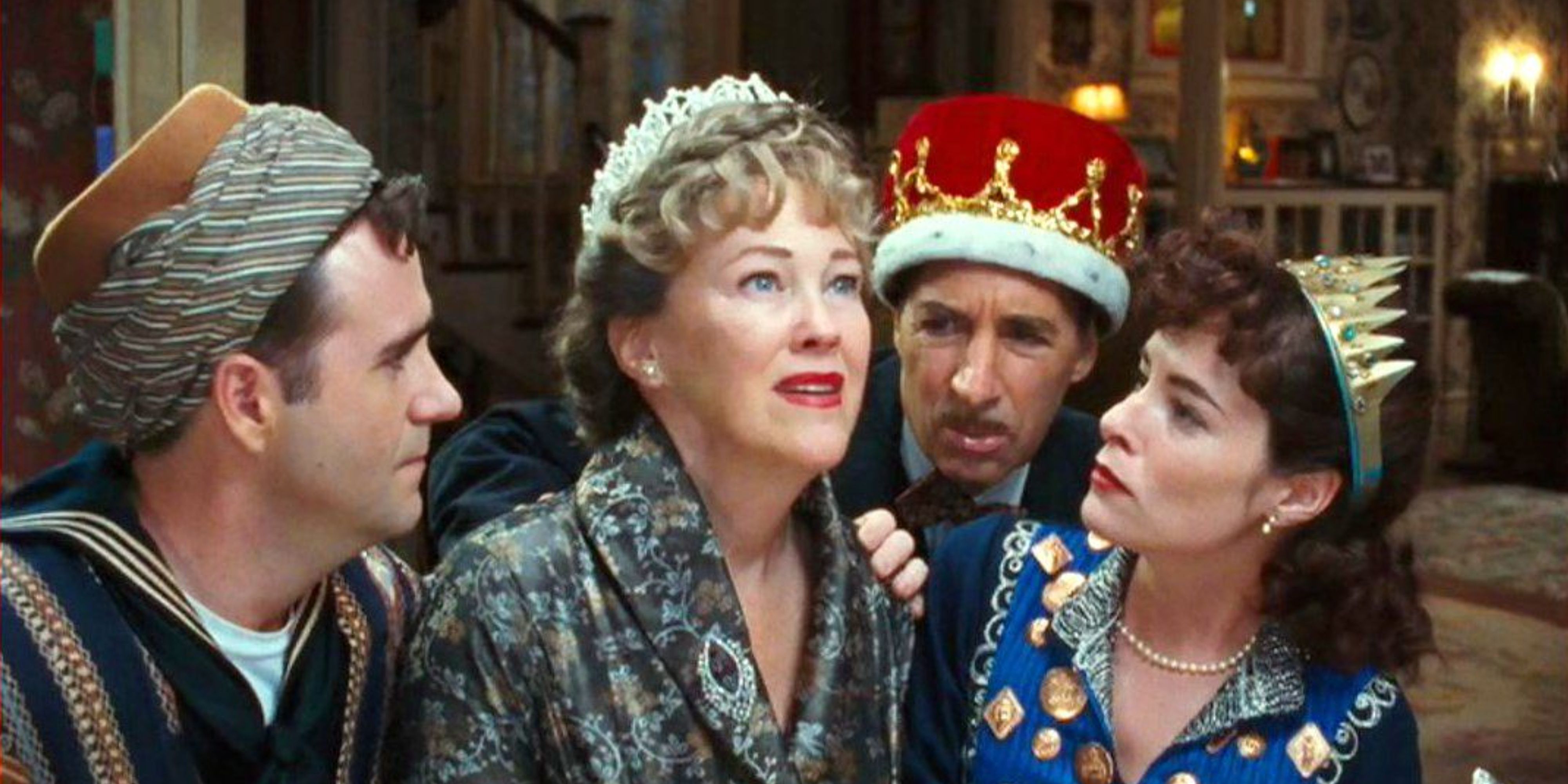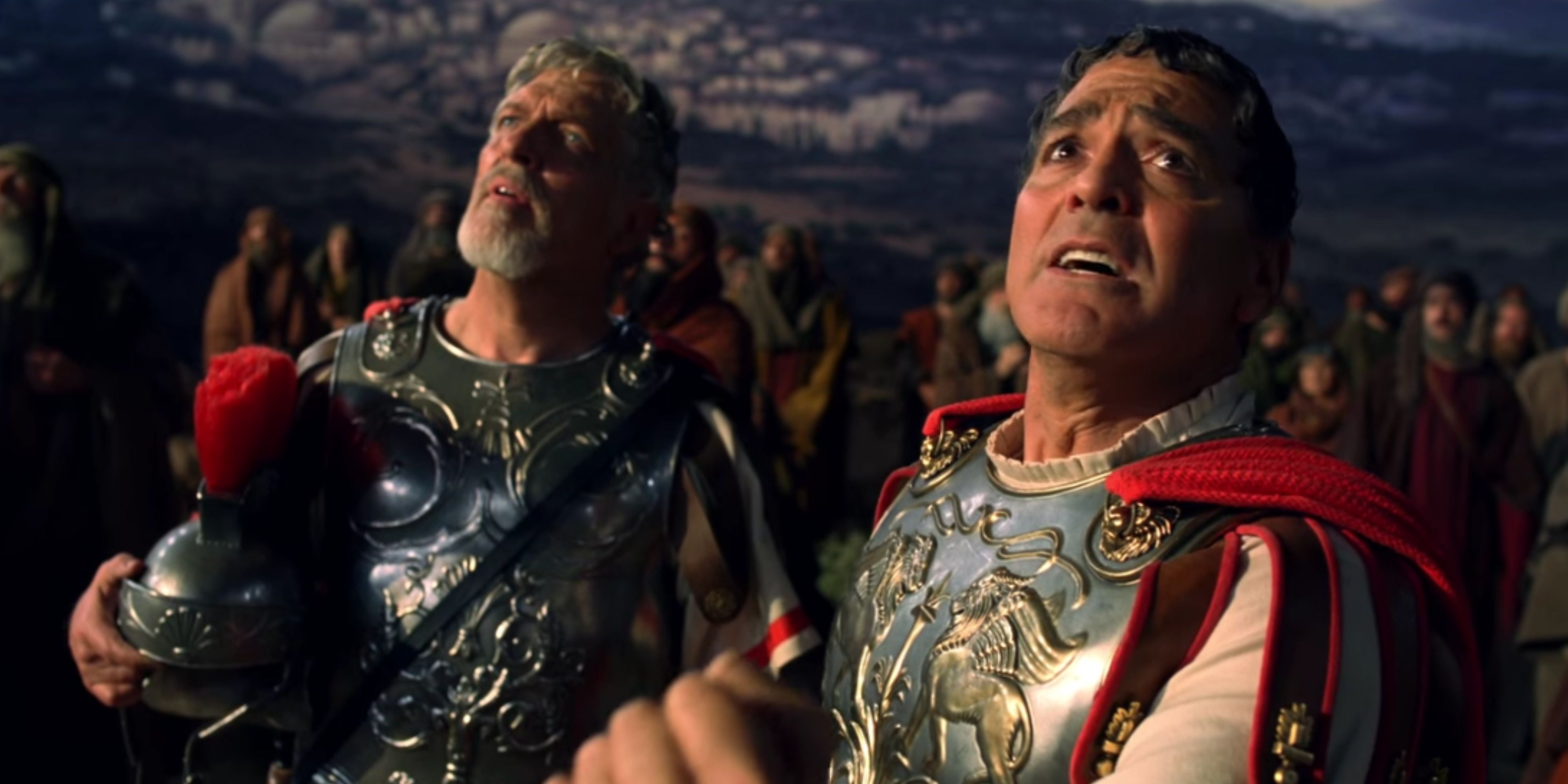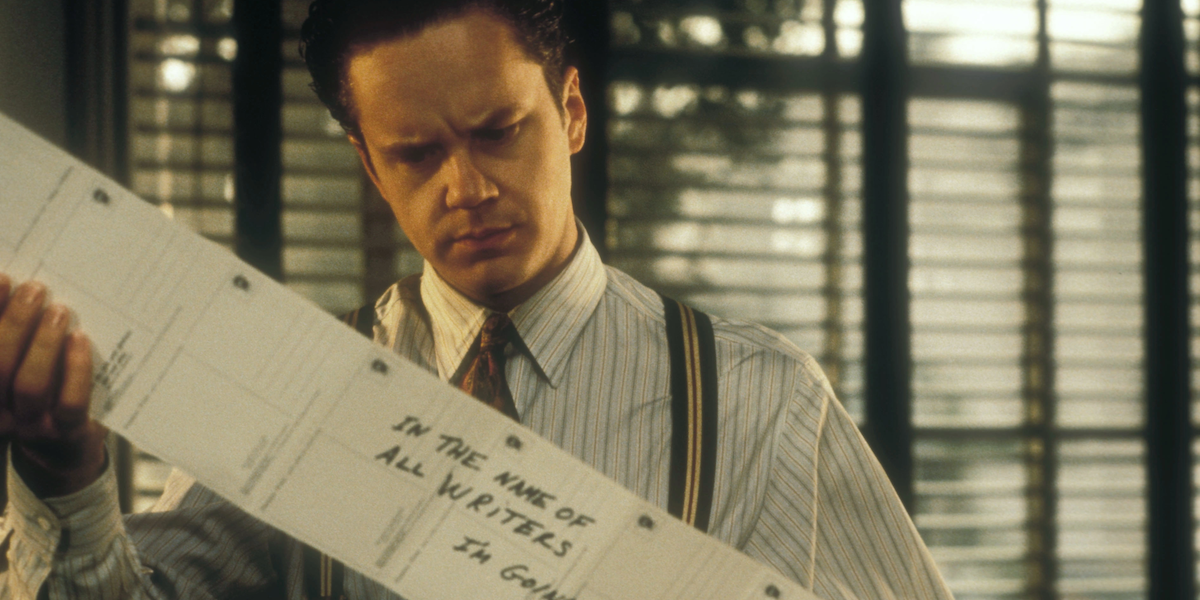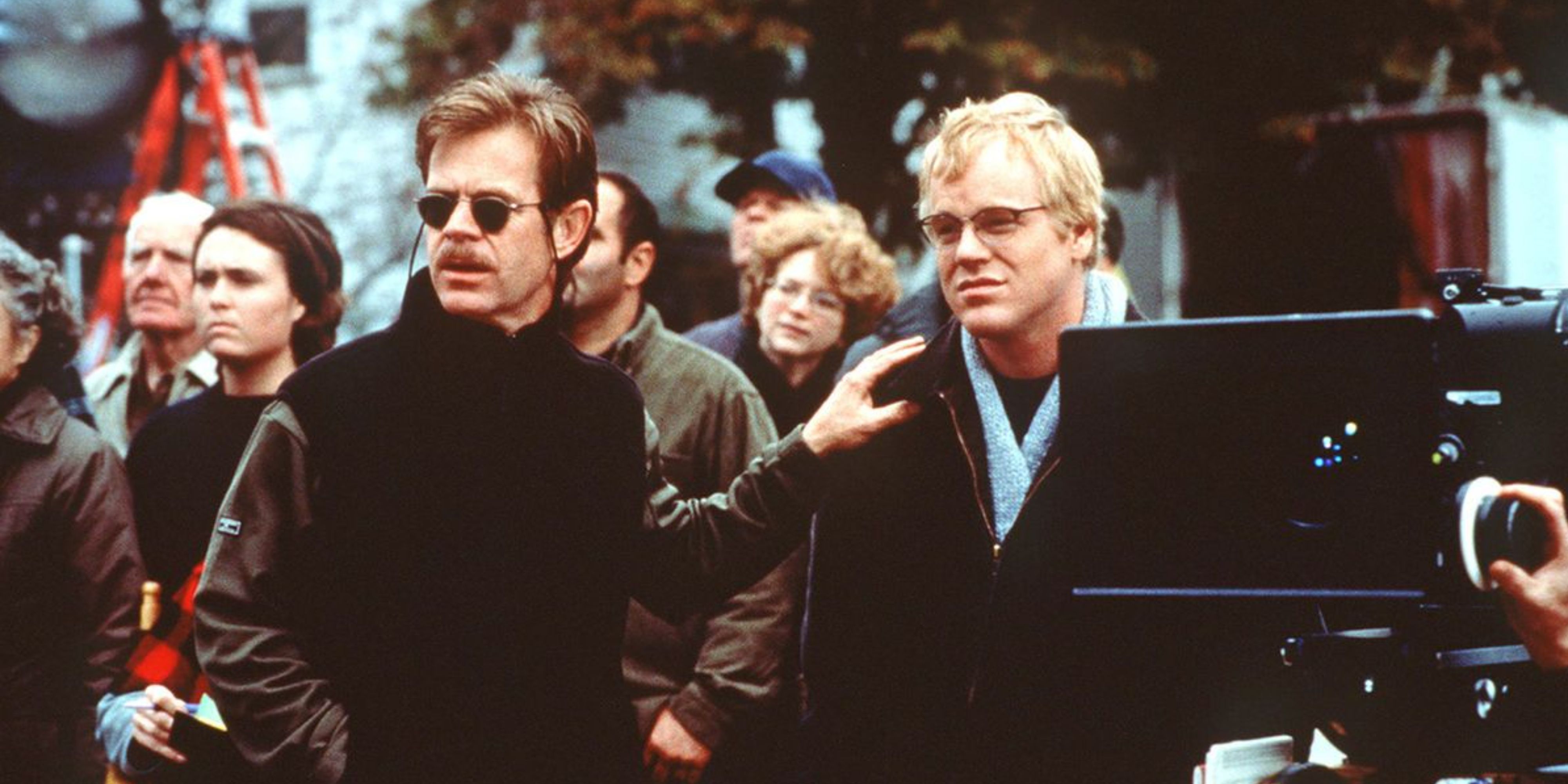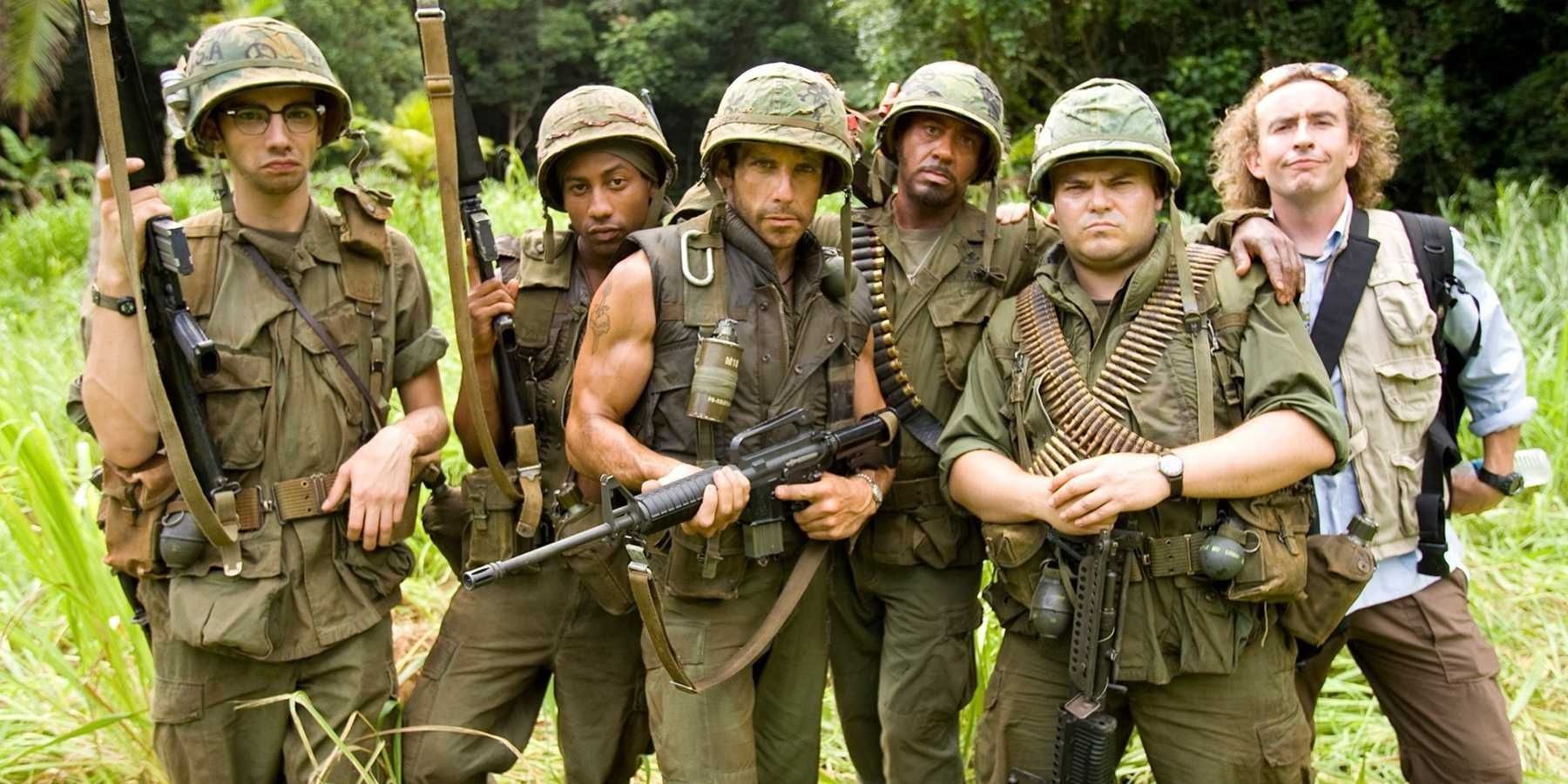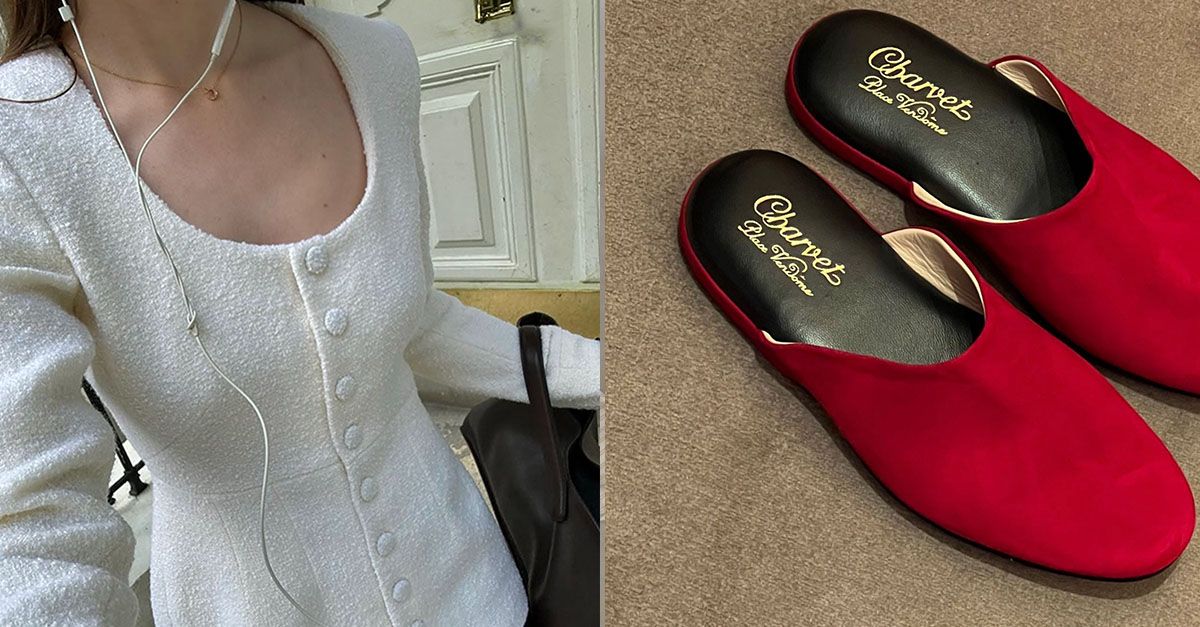The film industry likes to laugh at itself. Official Competition is a movie in which a bevy of prestigious accolades–including a Palme, a few Goyas and Golden Globes, and the Venice Film Festival’s Silver Lion–gets fed to an industrial-grade metal shredder, which premiered at the actual Venice Film Festival.
Starring Penélope Cruz as an eccentric auteur in the vein of Julia Ducournau (with a dash of Elia Kazan), and Antonio Banderas and Oscar Martínez as two actors whose approaches to their shared craft could not be any more different, Official Competition descends from a long tradition of storytelling that interrogates the material conditions of its own existence.
Adaptation. (2002)
Before he got behind the camera for Synecdoche, New York, Charlie Kaufman was one of them–a scribe whose involvement in any project overshadowed names with higher billing. After all, people don’t say “Michel Gondry’s Eternal Sunshine of the Spotless Mind” or “Spike Jonze’s Being John Malkovich.”
Charlie Kaufman’s gonzo sort-of autobiography stars Nicolas Cage (who just played himself in The Unbearable Weight of Massive Talent) as Kaufman and Kaufman’s fictional twin brother, Stanley. The movie deconstructs and self-consciously incorporates frequented tropes. Adaptation. is by far the superior Nicolas Cage meta-comedy.
Barton Fink (1991)
Barton (John Turturro) is an existentially tortured playwright whose dreams of reinventing theater for the Common Man are put on hold when he exiles himself to Los Angeles for a lowly screenwriting gig. A psychological horror disguised as showbiz satire, the Coen brothers’ sweaty and atmospheric Barton Fink examines the strange relationship between Hollywood’s intelligentsia and the public they entertain.
Barton wants to tell stories that will inspire the masses but wrinkles his nose at the prospect of attaching his name to a genre wrestling picture–the kind of redemption drama that plays well with general crowds. A creator’s responsibility to their audience, as well as the line between low- and high-brow art, is a subject Official Competition’s Iván (Martínez) and Félix (Banderas) bicker about constantly.
The Bubble (2022)
Judd Apatow’s most recent directorial output is about a cast and crew trying to make a franchise blockbuster during the pandemic. Karen Gillan plays typecast action star Carol Cobb. After failing to break into more serious fare, Carol is forced to star in “Cliff Beasts 7”–basically, a Jurassic Park knockoff with even poorer dialogue–and quarantine with castmates who still resent her for bailing on the sixth installment.
The gratingly off-pitch Middle Eastern accent Carol adopts for a Bible epic—her ill-fated foray into “prestige pictures”—is reminiscent of Tugg Speedman’s different but equally cartoonish performance in Tropic Thunder’s movie-within-a-movie, “Simple Jack.” Topical by design and valuable as a window into COVID-era production practices, The Bubble delivers in a starkly contemporary context everything we could want from an old-fashioned showbiz roast.
Entourage (2004-2011)
During the series’ eight-season run between 2004 and 2011, Entourage gave us an unusually comprehensive look at the entertainment industry. “The Cannes Kids”, in which Vince (Adrian Grenier) and company work the Croisette for the premiere of a Pablo Escobar biopic, is probably the best access to the festival circuit most of us will ever get.
Satires about the movie industry are usually full of terriblefake movies, but Entourage featured some that aren’t too far removed from the kind of pictures Hollywood actually produces. In fact, “Smoke Jumpers”–directed by a stand-in for Werner Herzog and starring Vince as a firefighter opposite an intense, full-method Jason Patric–is pretty much 2017’s Only the Brave, the mid-budget forest-fire drama Joseph Kosinski directed before making what will likely end up summer 2022’s biggest hit (Top Gun: Maverick).
For Your Consideration (2006)
From sleazy producers and broadcast personalities to actors who do a poor job of pretending they’re not in show business for the gold, every player in Hollywood’s annual circus of FYC campaigns and meet-and-greets is a target this Altman-inspired satire skewers with relish. There’s perhaps no film that better illustrates the inception and spread of awards buzz.
It’s impossible to not be reminded of Marilyn Hack (Catherine O’Hara) rehearsing indifference to Oscar hype when, in Official Competition, Iván–who’s declared that superficial things like awards are beneath him–stands in front of a mirror practicing an acceptance speech for a movie that hasn’t even started shooting. Both films disabuse of the notion that actors are simply humble and unwitting participants in a studio-run war.
Hail, Caesar! (2016)
Hail, Caesar! is set against the backdrop of the Red Scare and shortly after Joseph McCarthy’s HUAC hearings blacklisted some of the entertainment industry’s most prominent figures. Eddie Mannix (Josh Brolin) is not ideologically motivated and only dedicated to the success of his employer, Capitol Pictures…even if it means aiding an unjust crusade.
The Coens’ 2016 return to showbiz satire has all the subgenre’s hallmarks: A studio in crisis, high-maintenance actors whose personal lives jeopardize their movies, and a fixer who must manage egotistical directors and stars to navigate industry politics and keep the whole show running smoothly. The movie recreates Hollywood’s Golden Age with some stunningly colored and choreographed sequences that will remind you of the filmmaking’s magic, as well as its gaudy spectacle.
The Player (1992)
Tim Robbins plays a studio exec who accidentally kills a struggling writer and must weather professional turbulence while dodging criminal charges. Directed by Robert Altman, The Player features an even more horrendous movie-within-a-movie than the Altman-esque For Your Consideration’s “Home for Purim”—a legal thriller with Bruce Willis and Julia Roberts called “Habeas Corpus” that ends with a literal, and ludicrous, bang.
The Player is self-referential even by the standard movies about movies have set. Take, for example, two men discussing tracking-shot GOATs in the film’s very own all-time great unbroken opening take, or the pitch for a fictional motion picture called “The Player” that dictates the ending. The movie’s screenplay, like Adaptation.’s, has exchanges about narrative that negotiate the one still unfolding on our screens.
State and Main (2000)
With a title that references intersecting roads, State and Main isn’t shy about emphasizing the theme of the working class and small-town America. The David Mamet-written and -directed satire follows a production crew forced to move their shoot to Waterford, Vermont, where a writer played by Phillip Seymour Hoffman rediscovers his conscience after falling for a local.
It wouldn’t be a showbiz comedy without characters whose careers are on the line. Here, those setbacks include an actress reneging on a contractual stipulation and an actor with a checkered legal past. Anyone interested in the pre-production side of filmmaking–location scouting and storyboarding, for example–will find a lot to take away.
Tropic Thunder (2008)
The real fun in this subgenre, besides the cringy fake movies that are meant to ridicule actual commercial tastes, are actors going full prima donna; Tropic Thunder offers plenty of both, not to mention an unrecognizable Tom Cruise as a studio chieftain with a rage problem. The Ben Stiller-directed comedy has several memorable moments, but the one that cements it as a classic showbiz satire is of Stiller and Robert Downey Jr. discussing how far a method actor can go before alienating audiences and the AMPAS.
In a strange case of mise en abyme, Downey Jr. actually got a Best Supporting Actor nomination for, some argue, going too far and wearing blackface precisely to lampoon actors who, to embody their characters, go too far by doing things like wearing blackface. The in-film controversy is nearly impossible to separate from the real-life stir Downey Jr.’s performance caused when Tropic Thunder was released in 2008.
What Just Happened (2008)
Ben (Robert De Niro, giving an uncharacteristically self-effacing performance) is a movie exec who, like all such characters, is at a pivotal career point. A week away from showing “Fiercely” at the Cannes Film Festival, Ben must recut the movie after a disastrous test screening, placate an erratic filmmaker who’s about to cost the studio millions, keep track of an obstinate and bearded Bruce Willis, and still somehow save his marriage.
What Just Happened has a grungy and at times dreamy energy, not unlike a film by the Safdie brothers. The frenetic editing captures the dynamism of show business, while the occasionally hilarious screenplay ridicules its absurdity. Sure, visually incondite movies exist, but we know Tommy Wiseau’s The Room is bad. “Fiercely” gets a gala premiere on the French Riviera!









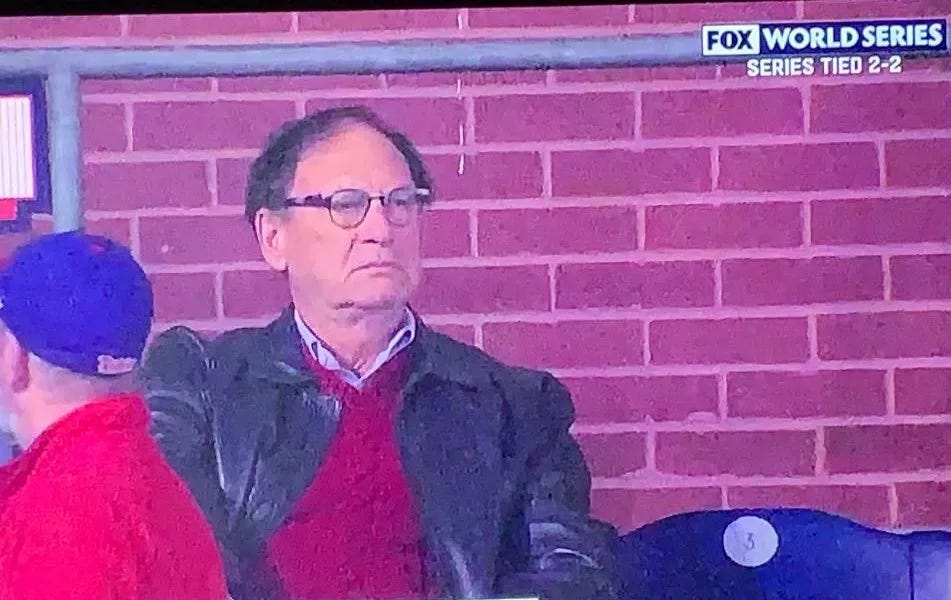
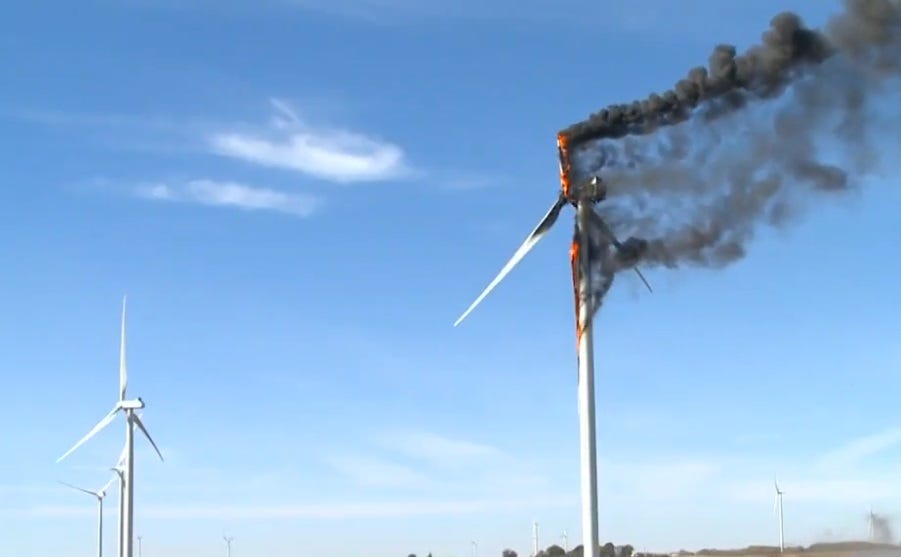

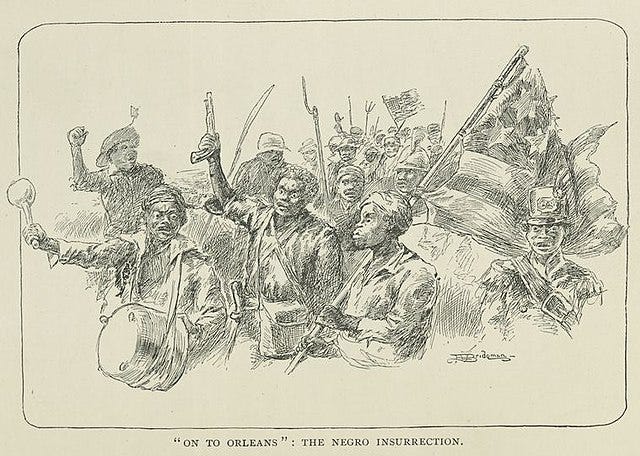
















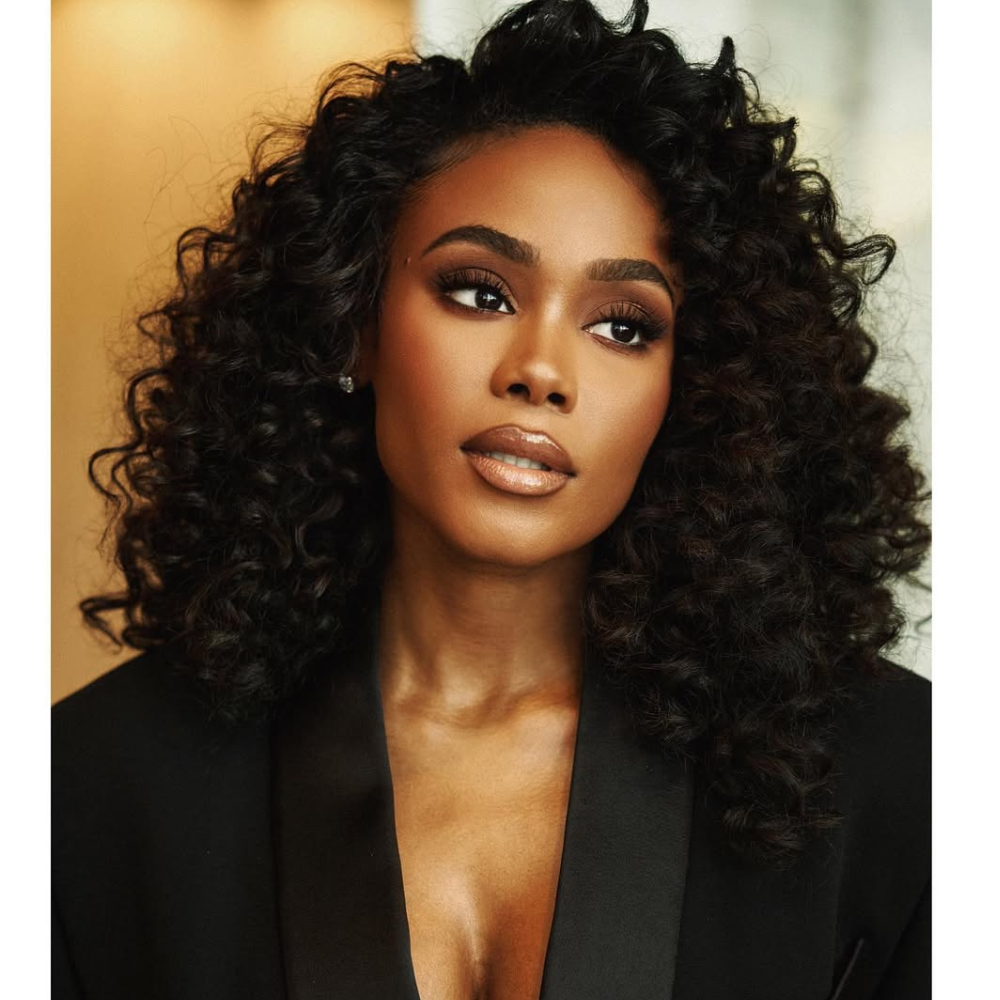







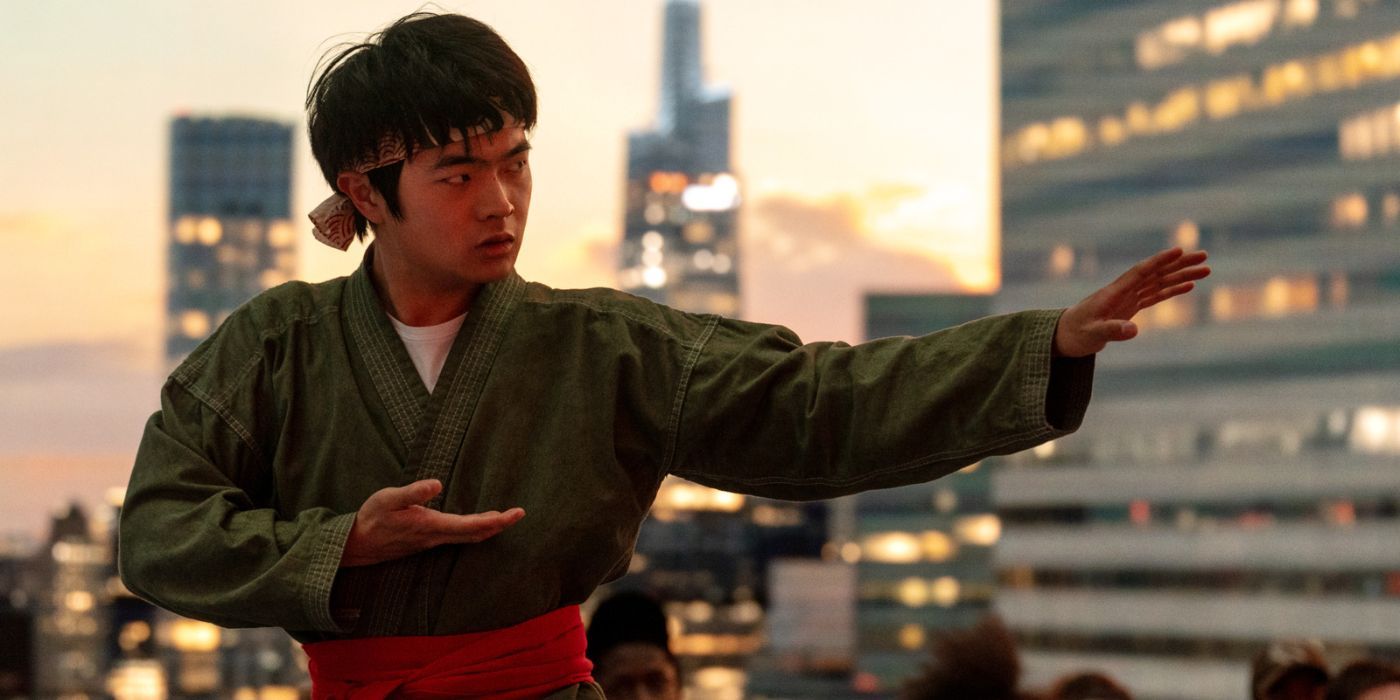


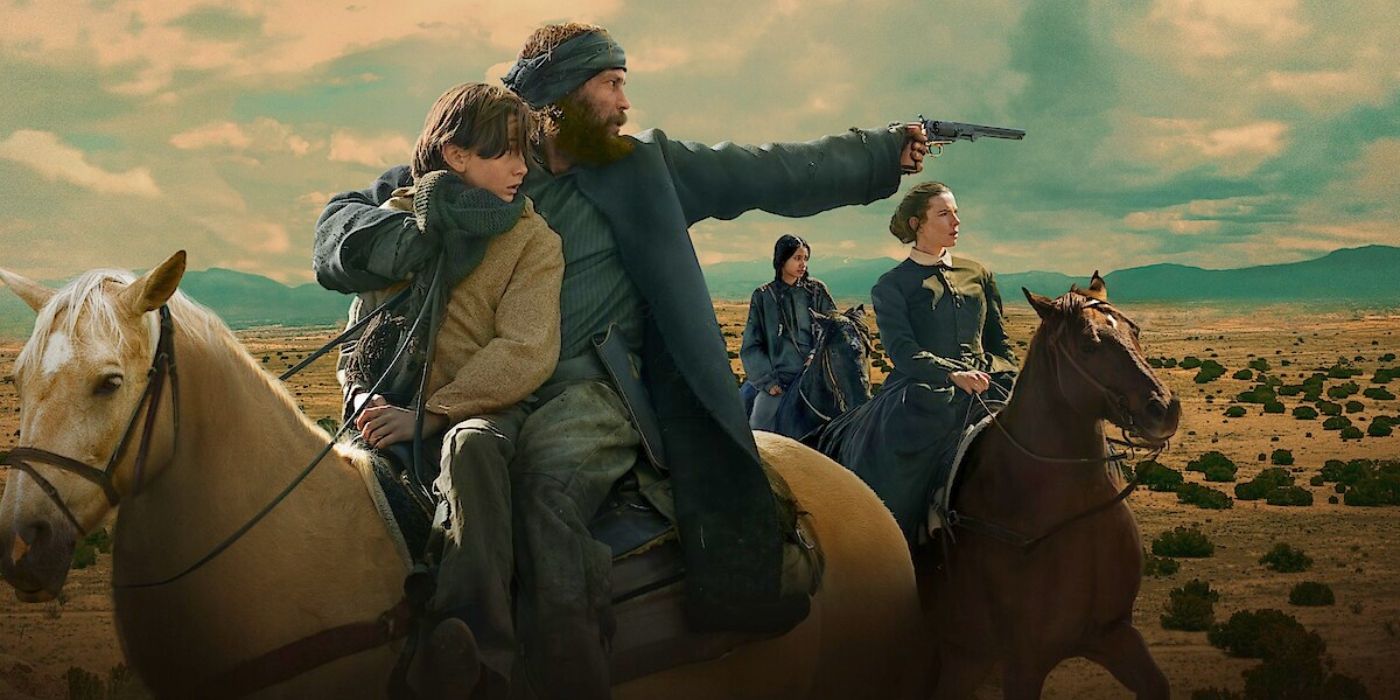
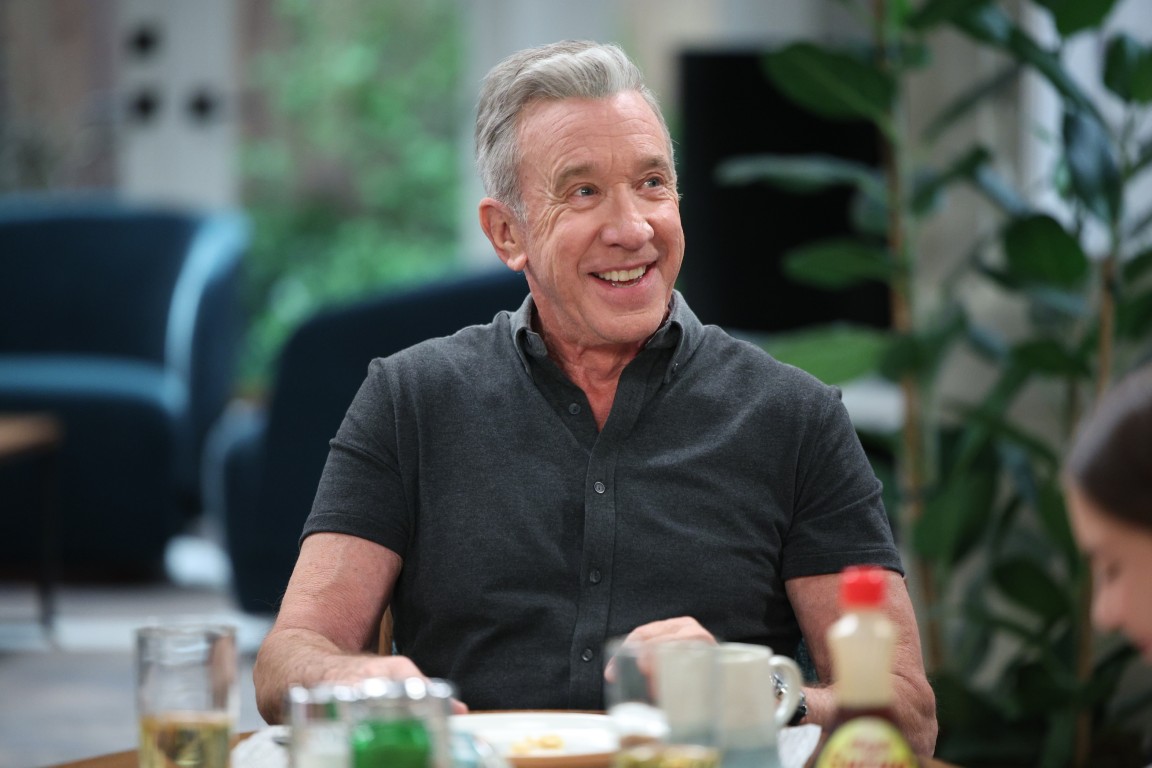

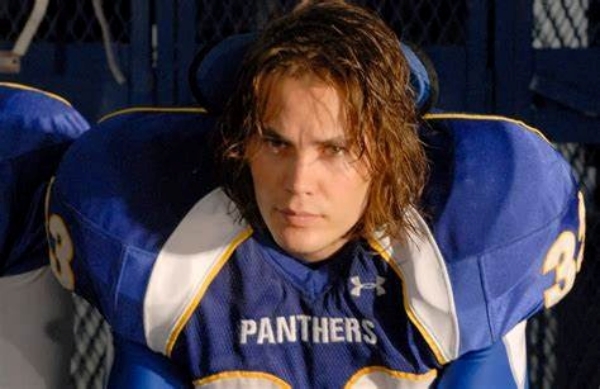

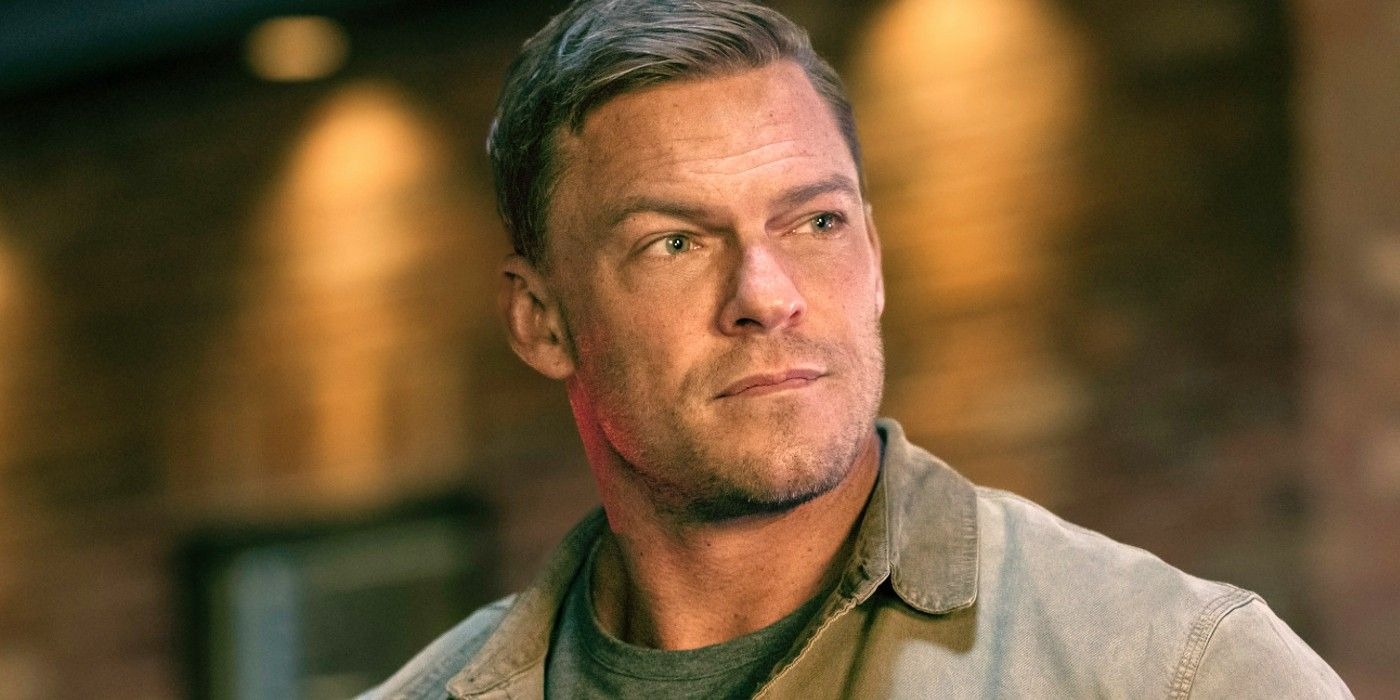








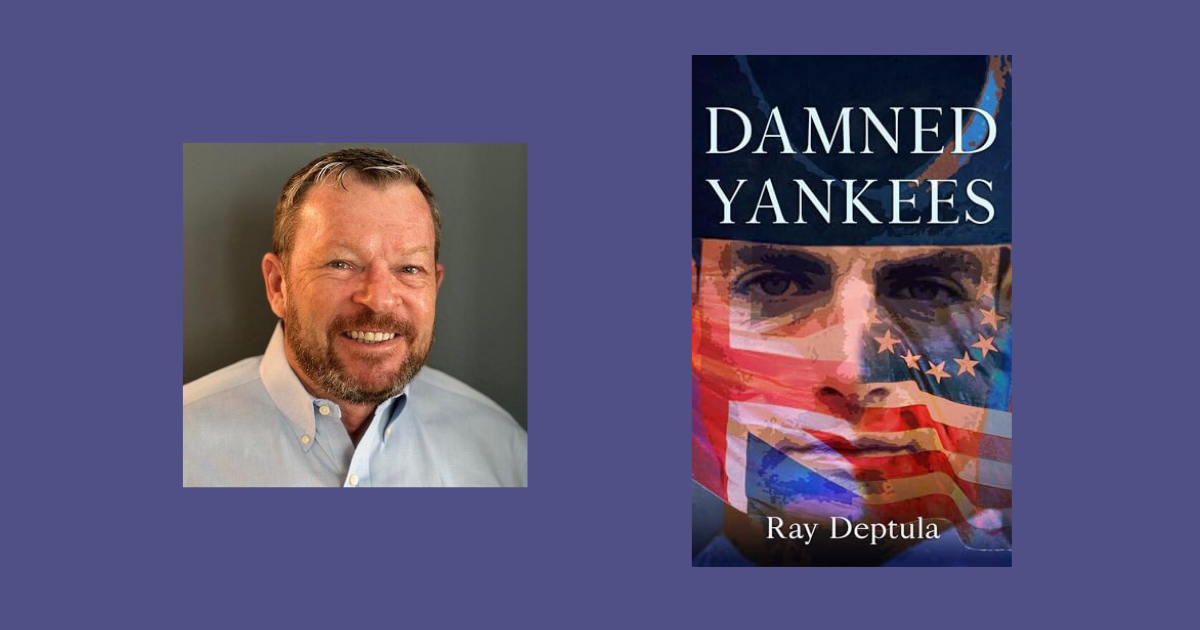
![20 Predictions for Social Media in 2025 [Infographic] 20 Predictions for Social Media in 2025 [Infographic]](https://imgproxy.divecdn.com/HMVhRh2JvYwAse_QsxNWdYtb_Of31-oCF2OnUe4eZqA/g:ce/rs:fit:770:435/Z3M6Ly9kaXZlc2l0ZS1zdG9yYWdlL2RpdmVpbWFnZS9zb2NpYWxfbWVkaWFfdHJlbmRzXzIwMjVfMi5wbmc=.webp)


![Instagram Shares Tips on What to Avoid to Maximize Post Reach [Infographic] Instagram Shares Tips on What to Avoid to Maximize Post Reach [Infographic]](https://imgproxy.divecdn.com/oeaypf55nGOsin6XxBa9EFYmwtVEiffkp9q_OiAPUGM/g:ce/rs:fit:770:435/Z3M6Ly9kaXZlc2l0ZS1zdG9yYWdlL2RpdmVpbWFnZS9pbnN0YWdyYW1fZGlzdHJpYnV0aW9uX2luZm9ncmFwaGljMi5wbmc=.webp)


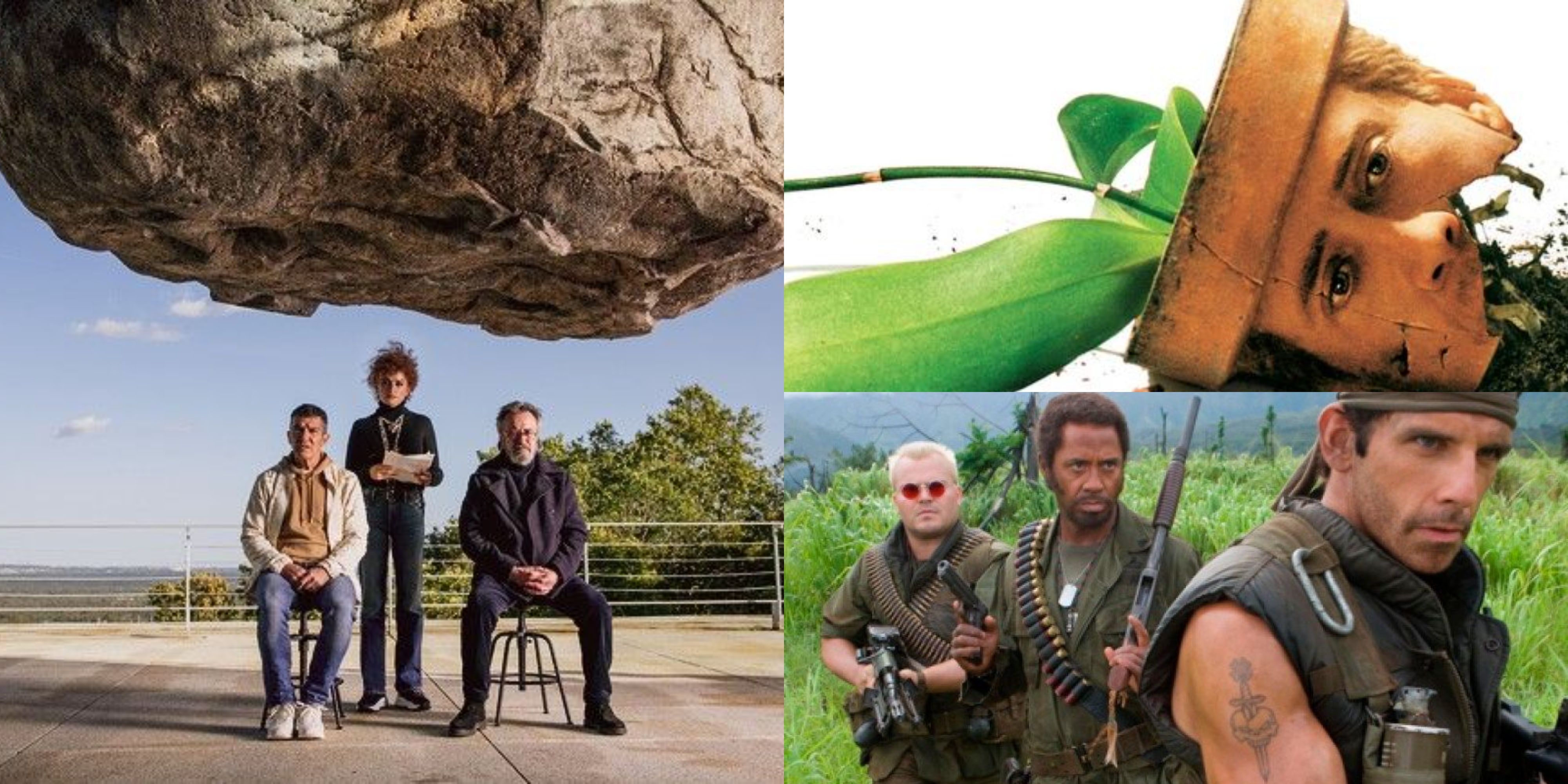

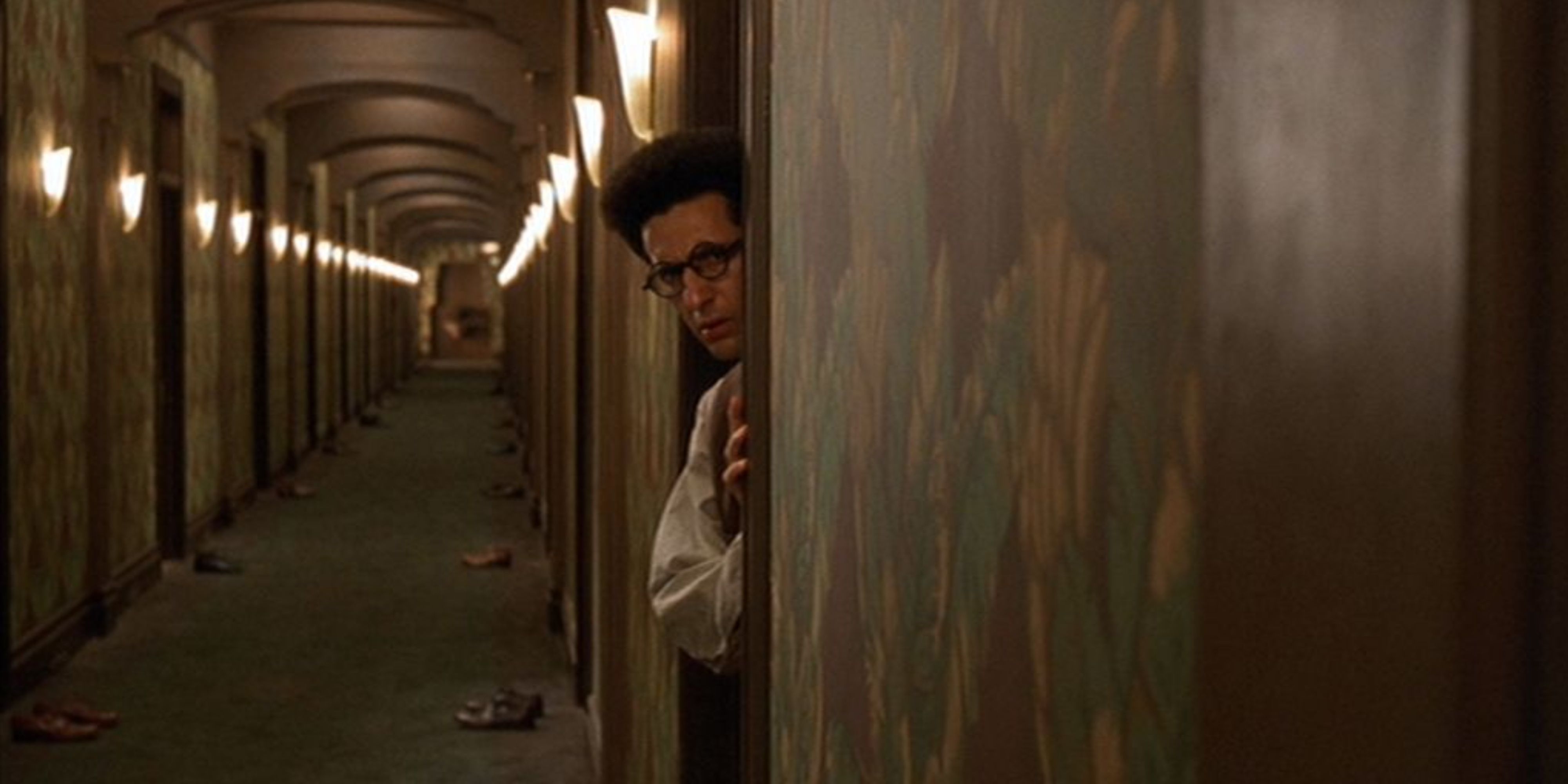
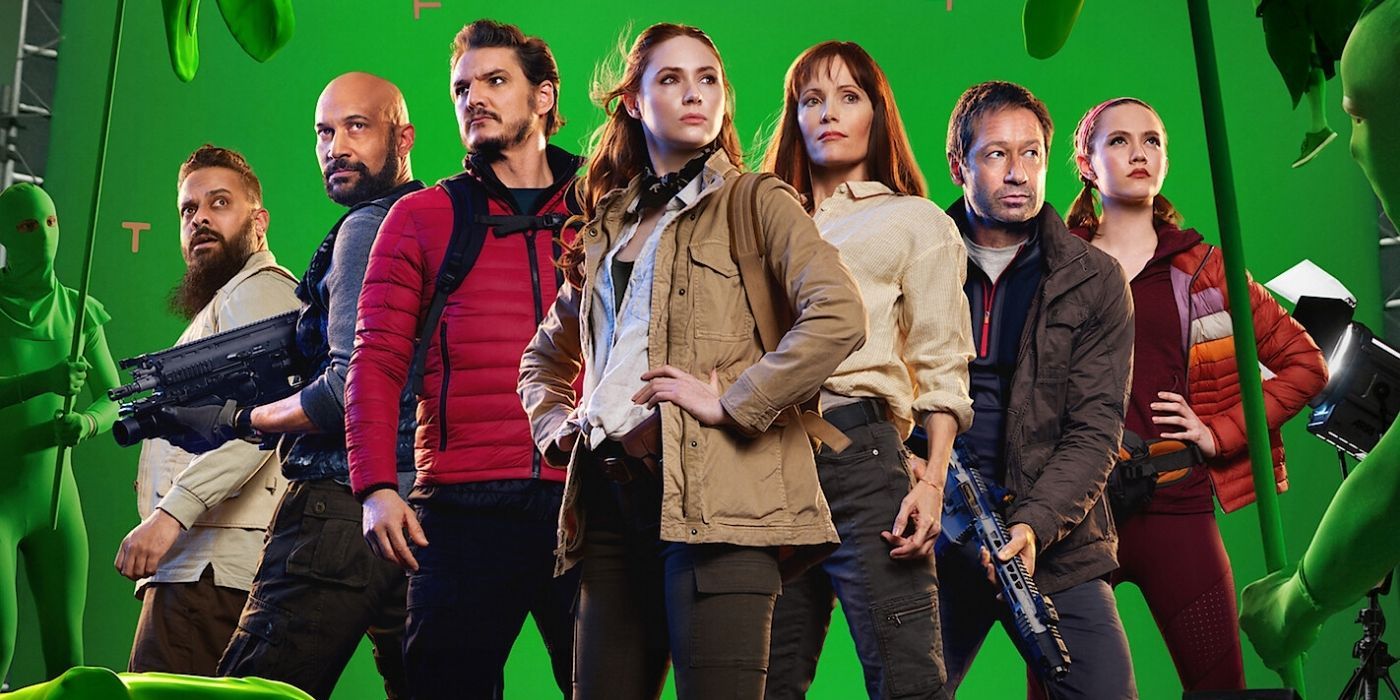
.jpg)
